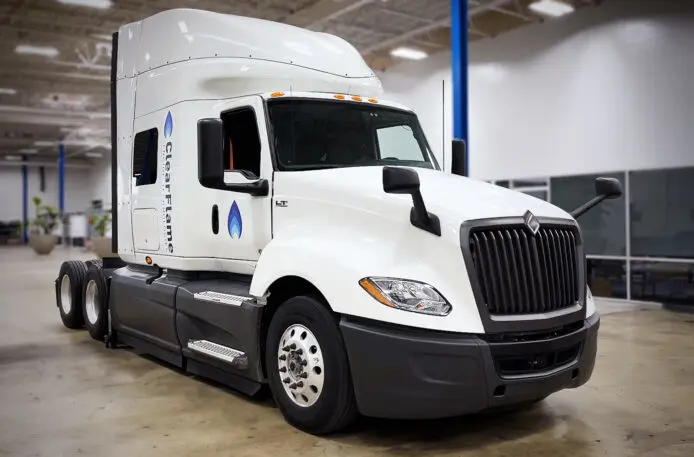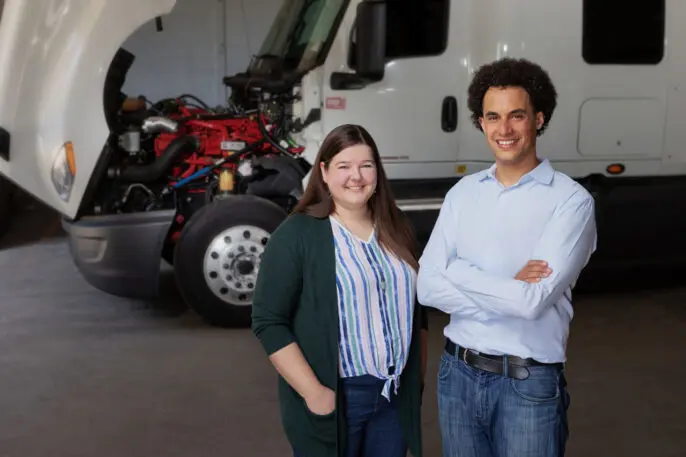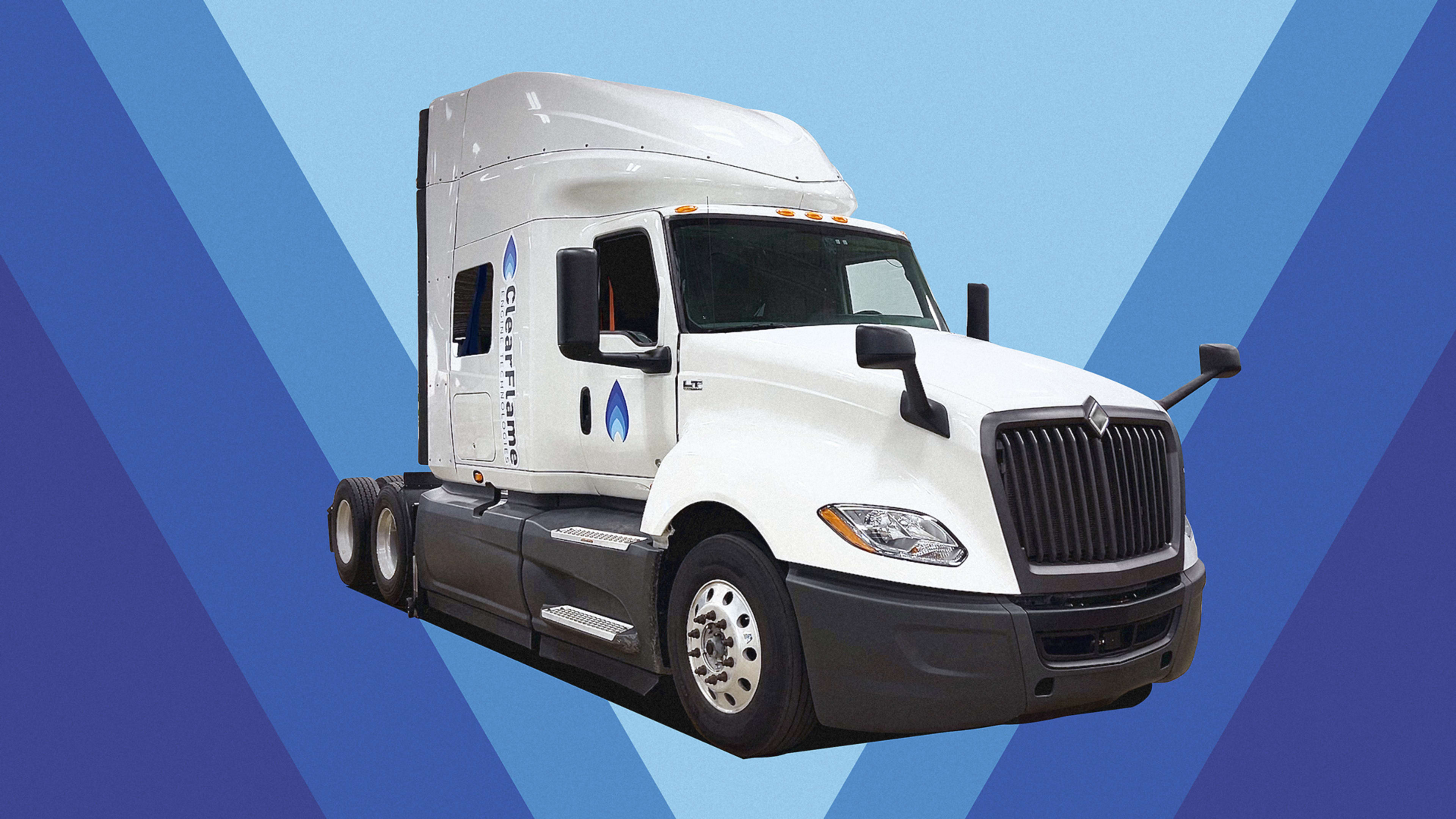The diesel big rig is starting to move into the carbon-free future: Electric semi trucks are already beginning to make deliveries around the country. But although they can work well for short trips—and Volvo’s newest electric semi will be able to travel up to 275 miles before charging—they still aren’t yet a viable alternative for the trucks that have to cross the country, which is how so much freight is moved. That’s why one startup is working on technology that can be put in use now: It tweaks diesel engines so they can use 100% renewable fuel, with no change in how the trucks run.
“Rather than trying to design an entirely new engine from the ground up, we said, okay, what is the minimum subset of parts and components we could swap inside this engine to make it fundamentally fuel agnostic, and to switch to something cleaner?” says BJ Johnson, CEO of the startup, called ClearFlame Engine Technologies, which recently raised $17 million from investors including Bill Gates-founded Breakthrough Energy Ventures.

Ethanol, which is typically made from corn, still has a carbon footprint, including the climate impact of fertilizer used to grow the crop. But current lifecycle data suggests that pure ethanol emits around 45-50% less greenhouse gases than diesel. And because the electric grid is still shifting to renewable electricity, the startup claims that a truck running on 100% ethanol is actually cleaner, at the moment, than an electric truck.
The technology insulates a diesel engine so it can run at a higher temperature, and alternative fuels like ethanol can ignite in the same way that diesel would. The converted engines can also use other fuels, such as fuels made from captured CO2. But right now, the startup is focused on ethanol, because it’s readily available and cheaper than diesel, so trucking companies and others that use diesel engines have an immediate incentive to switch. John Deere, another investor in the startup, could use the technology in farm or construction equipment. Diesel generators that are used for backup power could also convert their engines.

While electric vehicles already make sense for some applications, including passenger cars and trucks, school buses, and, say, postal delivery trucks, ClearFlame hopes to tackle vehicles that can’t transition as easily. There’s no single silver bullet solution, but the technology could help cut emissions significantly now. By one estimate, even as EVs become more popular, only 25% of new heavy-duty trucks will be zero-emissions more than a decade from now.
The speed of the transition matters, says Blumreiter, who compares emissions to interest on a bank account: Because CO2 builds up in the atmosphere, avoiding emissions now can have more impact than avoiding the same amount of emissions later. Globally, diesel engines are currently responsible for around 5 gigatons of CO2 emissions. “Even if we’re only cutting those carbon emissions in half—and to be clear, I think we absolutely will get to net zero on this in a decade or so—you’re looking at it at a gigaton-plus of carbon mitigation,” says Johnson.
ClearFlame will start testing the technology with customers later this year, while working with suppliers to make parts as quickly as possible. After EPA emissions testing, it could be on the market in 2023.
Recognize your brand's excellence by applying to this year's Brands That Matters Awards before the early-rate deadline, May 3.
